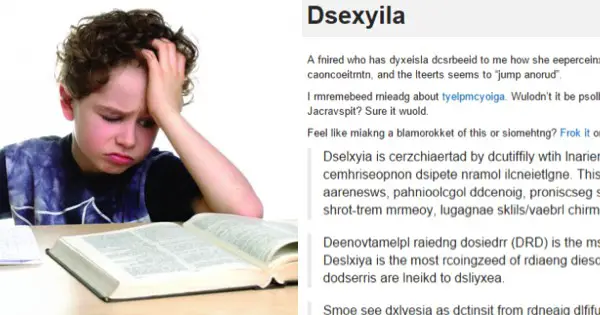Have you ever wondered what it’s like to have dyslexia? After Victor Widell’s friend described what it was like, he decided to create a website to allow non-dyslexic people to experience it.
Dyslexia is a permanent condition that affects reading, writing, spelling and speaking — and although it’s common, it’s still not widely understood.

Widell’s dyslexic friend said that when reading, all the letters appeared to swap around before she could process what a word said. This greatly increased the time it took for her to read anything.

So he created a simulation that scrambles the letters within each word to recreate the effect dyslexia produces for some people.

Although the simulation has been praised, not everyone diagnosed with dyslexia experiences it in the same way. Those with extreme dyslexia find it even more difficult to read as they experience vertical text jumbling where “words and letters swap into preceding and following lines.”

In case you’re wondering, the text without the effect says:
A friend who has dyslexia described to me how she experiences reading. She can read, but it takes a lot of concentration, and the letters seem to ‘jump around.
I remembered reading about typoglycemia. Wouldn’t it be possible to do it interactively on a website with JavaScript? Sure it would.
Dyslexia is characterized by difficulty with learning to read fluently and with accurate comprehension despite normal intelligence. This includes difficulty with phonological awareness, phonological decoding, processing speed, orthographic coding, auditory short-term memory, language skills/verbal comprehension, and/or rapid naming.
There are three proposed cognitive subtypes of dyslexia (auditory, visual and attentional), although individual cases of dyslexia are better explained by specific underlying neuropsychological deficits and co-occurring learning disabilities (e.g. attention-deficit/hyperactivity disorder, math disability, etc.).
Although it is considered to be a receptive language-based learning disability in the research literature, dyslexia also affects one’s expressive language skills. Researchers at MIT found that people with dyslexia exhibited impaired voice-recognition abilities.

